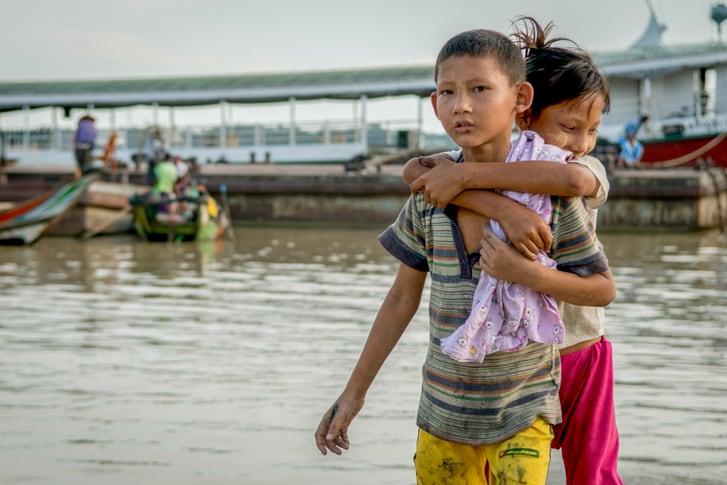Tdh, through the CLARISSA consortium – Child Labour Action-Research-Innovation in South and South East Asia – builds a strong evidence base and generates innovative solutions for children to avoid exploitation in Bangladesh, Myanmar and Nepal.

Key figures
160 mio
children are victims of child labour in the world
1200
stories of children engaged in the worst forms of child labour are developed
1500
families in Bangladesh will be supported with cash and assistance from 2021 to 2023
The child-centered action-research project CLARISSA analyses key drivers of the worst forms of child labour and develops innovative solutions to prevent them.
Worldwide, 160 million children are victims of child labour; almost half of them, 79 million, work in hazardous conditions. Our aim is to co-develop, with children and families, context-appropriate solutions for children to avoid engagement in hazardous and exploitative forms of labour.
Action-research based on children’s experiences
In the CLARISSA project, Tdh and partners collected 1200 stories of children affected by child labour from Bangladesh, Myanmar and Nepal to explore the drivers of worst forms of child labour. Children actively take part in the action-research: they are supported to collect lived experiences from peers by themselves and they analyse the evidence through a participatory narrative analysis process. Through this analysis process, children could identify the drivers that push children into worst forms of labour and could see the dominant patterns across children’s life stories. They will try to illustrate the interconnected relationships between factors that lead children into worst forms of child labour. For example, the father of a 12-year old had a health issue which led the family to take loans, leading the child to leave school and to engage in work in a leather processing factory, the child was exposed to chemicals and heavy machinery leading the child to become ill. In a next step, children form action research groups and develop their own theory of change, take actions, reflection and evaluation with the aim to identify innovative solutions to tackle the worst forms of child labour.
This approach combines evidence gathering and learning from action. The key research themes are innovation in social protection, positive family dynamics and social norms, revealing and reducing harm in supply chains, as well as child participation.
Children advocate for their rights
Children are supported to develop, advocate, and communicate their own views and ideas, and to participate at all levels of decision-making. They are part of child clubs that link with government bodies, the International Labour Organisation (ILO), companies and global forums where they can speak up, inform on the experiences of children in hazardous labour situations and propose solutions.

Social protection intervention
In Bangladesh, Tdh supports more than 1500 families through an innovative ‘cash plus’ intervention for tackling social ills, with a focus on the worst form of child labour. The CLARISSA ‘cash plus’ intervention is centred around regular cash transfers and is complemented with two ‘plus’ component that provides additional support. The first ‘plus’ component focuses on activities at child and family-level through a case work. The second ‘plus’ component focuses on community mobilisation and collective action at community and group-level. The social workers facilitate needs-based children’s and adults’ groups, collect household monitoring data, and offer support.
“I'm very happy because I can finally go back to school after two years. It's all thanks to the CLARISSA programme. Because of the pandemic, my studies got stopped suddenly, and I had to work at a leather factory, which I didn't like at all. All I really wanted was to be in school. Now that I'm free from that job, I'm very excited to start studying again. I know it's the beginning of a new chapter in my life, full of hope and new chances.”, says a 16-year-old boy.
The aim of CLARISSA is to improve understanding of the factors that drive the worst forms of child labour and to develop innovative interventions to counteract them.
The CLARISSA consortium members are the Institute of Development Studies, Terre des hommes, ChildHope and the Consortium of Street Children.
Supported by

Foreign, Commonwealth & Development Office
The FCDO is a UK government department, supported by 11 public agencies and bodies. The FCDO promotes the interests of British citizens, protects the security of the UK, defends its values, and aims to reduce poverty and address global challenges with the UK's international partners.

